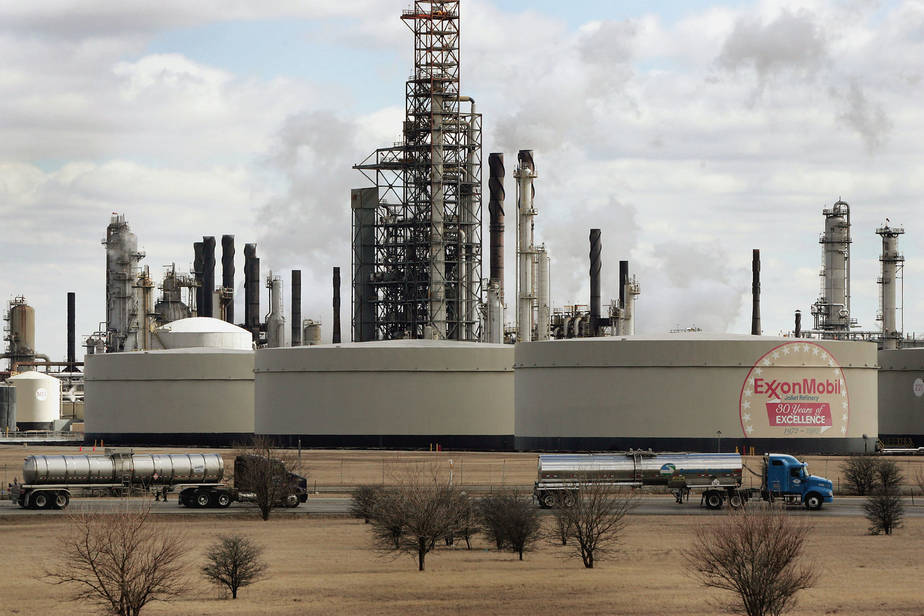
Title
By John H. Cushmaan Jr., InsideClimateNews.org
December 15, 2016
Major corporations, especially those in the energy business, need to clearly tell shareholders about the risks they face from the global climate crisis. That is the recommendation of a blue-ribbon panel convened by the economically powerful Group of 20.
The panel, which released its recommendations on Wednesday, strongly urged one step that dissident shareholders have been seeking: to impose financial "stress tests" examining how fossil-fuel giants will fare as the world moves toward keeping global warming below 2 degrees Celsius. Such a measure was rejected this year by Exxon and Chevron.
The international task force, led by businessman and former New York Mayor Michael Bloomberg, said corporate climate-risk disclosures should be consistent and transparent among companies all around the world. The panel, called the Financial Stability Board, recommended they adopt the measures voluntarily.
Representatives of large investment groups, including the giant state pension funds of California and New York, endorsed the steps and said that the marketplace was increasingly likely to enforce this kind of discipline, no matter what governments require.
"Regardless of the political winds that blow, you can deny the science, but you can't deny the economics," said Anne Simpson, a representative of the California fund, Calpers, when asked whether the election of Donald Trump would influence whether the recommendations take hold. "I think the political process will work itself out. But in the meantime, the markets are driving this."
A particularly important step, the expert panel said, was for companies to explain how their businesses would be affected in a world where nations are acting together to reduce carbon dioxide emissions to zero, the ultimate goal of the Paris climate treaty.
"To stem the disastrous effects of climate change within this century," the panel noted, "nearly 200 countries agreed in December 2015 to reduce greenhouse gas emissions and accelerate the transition to a lower-carbon economy.
"The reduction in greenhouse gas emissions implies movement away from fossil fuel energy and related physical assets. This coupled with rapidly declining costs and increased deployment of clean and energy-efficient technologies could have significant, near-term financial implications for organizations dependent on extracting, producing, and using coal, oil, and natural gas."
Companies must make plain to investors that there are risks for some enterprises and opportunities for others. Explaining the company's prospects in a world committed to the 2-degree target "provides a common reference point that is aligned with the objectives of the Paris Agreement and will support investors' evaluation of the potential magnitude and timing of transition-related implications," the report said.
It said that companies owe it to investors and lenders to disclose possible risks based on "a set of scenarios (not just one) that covers a reasonable variety of future outcomes, both favorable and unfavorable." Aside from a 2-degree scenario, for example, it might show an alternative future based on business as usual, and yet another based on the climate pledges of individual countries under the Paris agreements.
Several big oil companies routinely write scenarios for different ways the energy markets play out. To some extent, those offer the kind of perspective sought by the Financial Stability Board.
But its report described a much more rigorous approach, in which all companies would examine themselves under a common standard, making the conclusions widely available to lenders, investors and the public.
The notion of reporting the risks of climate change to investors has grown ever more influential over the past decade. Guidelines for companies are not consistent, however, and compliance is spotty.
Among the issues being investigated by the attorney general of New York, Eric Schneiderman, in his continuing probe of Exxon, is whether the company has adequately disclosed to investors all that it knows about the risks it faces from climate change.
In another development showing how murky current disclosures can be, the World Resources Institute published a template that it said would allow fossil fuel companies to more candidly set forth how much greenhouse gases would be added to the earth's heat-trapping blanket of pollution if all their reserves were to be produced and burned. As things stand, WRI said, not a single oil or gas company explains this to their investors. If investors fully understood this issue, they might see more clearly that some companies might not be worth as much as thought, because some of their assets are likely to be stranded when emissions are limited.
It's senseless to brush off the severity of the global warming problem or to fuzz over the problems it poses to investors, the Financial Stability Board's task force warned. A head-in-the-sand approach invites an eventual economic upheaval along the lines of the recent Great Recession as fossil fuel reserves become the sub-prime mortgages of the next financial crisis.
"Potential shocks and losses in value," the report said, "include the economic impact of precipitous changes in energy use and the revaluation of carbon-intensive assets—real and financial assets whose value depends on the extraction or use of fossil fuels."
The task force's recommendations are aimed not only at big fossil fuel companies, but at the banks, insurance companies, investment managers and shareholders, who "sit at the top of the investment chain and, therefore, have an important role to play in influencing the organizations in which they invest to provide better climate-related financial disclosures," the report said.
Read on InsideClimateNews.org.